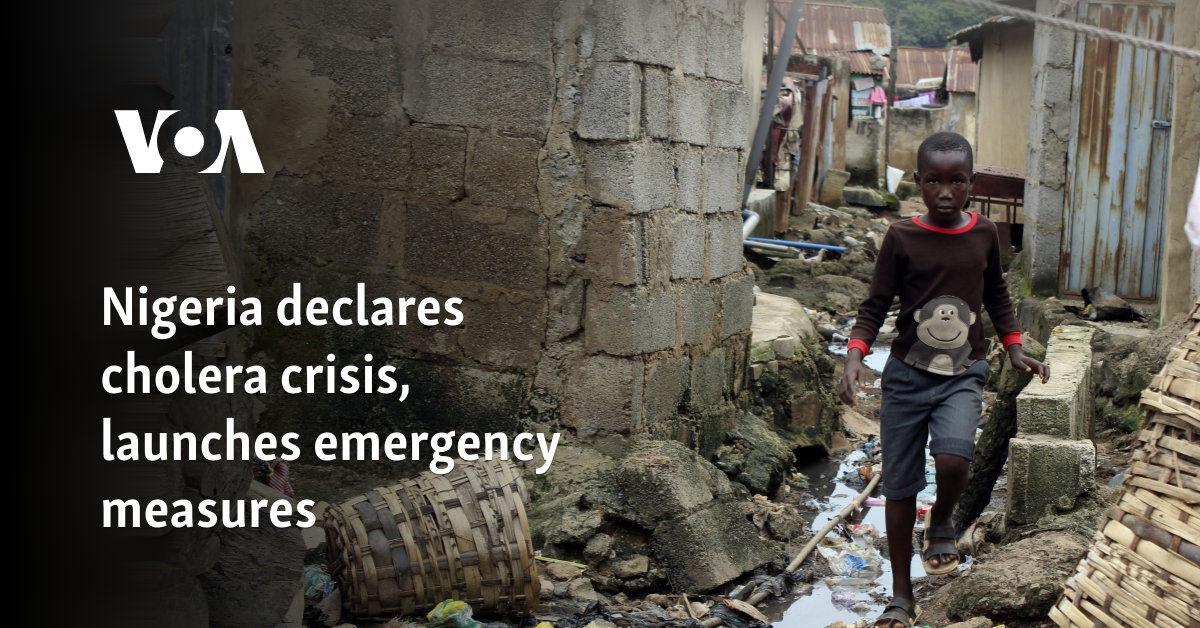Nigerian authorities have declared a national emergency and activated response operations to control the spread of a cholera outbreak that has killed more than 50 people.
The Nigerian Center for Disease Control, or NCDC, said Tuesday that its decision to activate the National Cholera Emergency Operation center followed a risk assessment conducted by authorities last week.
NCDC said the assessment showed the country was at high risk of the disease and that the fatality rate from cholera stood at 3.5% of cases.
So far, 53 people have died out of more than 1,500 recorded cases in the country. Nigeria’s largest city and economic hub, Lagos, is the most impacted.
“Having considered all the details available, there’s still an increasing trend of suspected cases nationwide,” said Jide Idris, director general of the NCDC. “We have four levels of risk — low, medium, high and very high. We’ve seen more cases in more states than we did last year.”
National health authorities say they will work with affected state authorities to ensure rapid case detection, analysis and management.
The latest outbreak comes as the European Union pledged millions to help fund vaccine production in Africa. The continent depends on imports for more than 90% of its vaccine doses.
Last week, the NCDC said Nigeria had no cholera vaccines and is waiting for fresh supplies.
Public health analyst Chukwunonso Umeh said the threat is serious.
“I’m happy that the government has actually declared an emergency on this,” said Umeh. “The virulent level is very high, so there’s a possibility of transmutation; in terms of the severity of the symptoms, it’s kind of higher and the rate at which it is being transmitted is also higher.”
Cholera is a seasonal disease in Nigeria, and authorities warn the impact could worsen with the rainy season.
The disease spreads through contaminated food and water, causing severe diarrhea and death if not treated.
Umeh said socioeconomic problems are affecting the way the disease impacts Nigerians.
“Cholera is a hygiene-related disease,” said Umeh. “With the current hardship in the country, people are struggling … there are a lot of risk factors that people are being exposed to. You don’t know the source of the water that they use in making some of those foods. One of the basic things in terms of minimizing this for now is improving awareness of what people are supposed to do, sensitizing people, community mobilization.”
In 2018, Nigeria recorded 830 deaths from more than 42,000 cases of cholera — the highest numbers in recent years.







